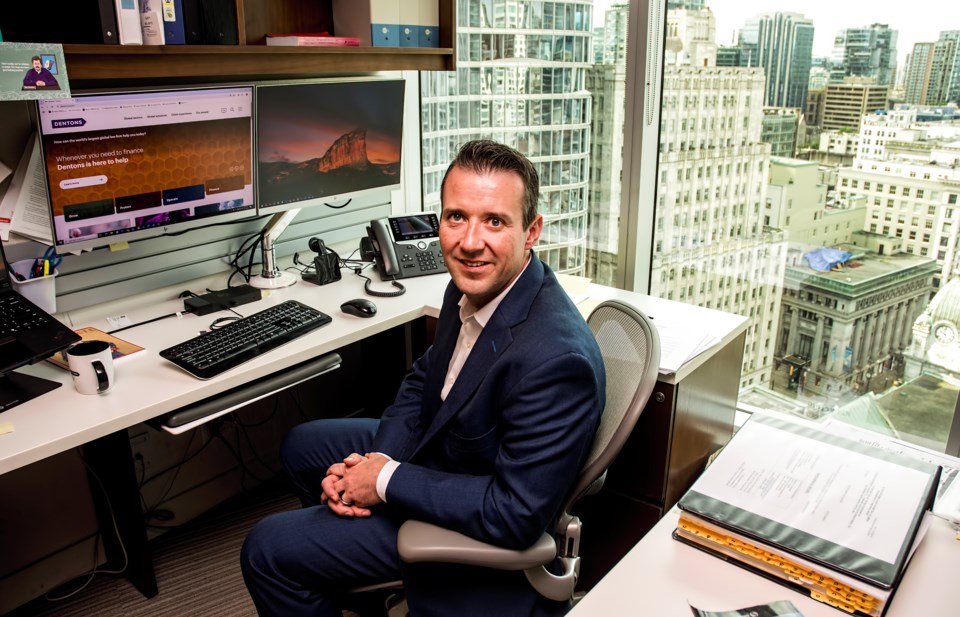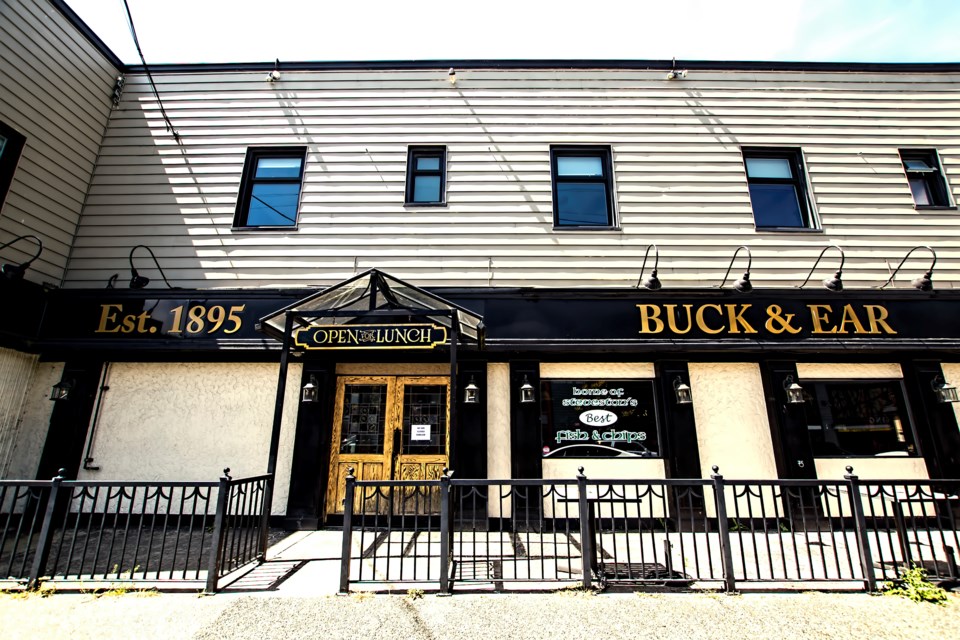Laying off most staff, cutting spending wherever possible and retrenching into a much smaller venture is not the only option when tough times hit.
Applying for court protection from creditors under the Companies’ Creditors Arrangement Act can help top executives who are strategizing on how to restructure firms into viable operations.
Many Vancouver-based businesses have found that this can be key to saving jobs and keeping storefronts operating.
Others have been able to stickhandle corporate sales without entering the process.
One major benefit of entering creditor protection is that the process provides breathing room, because the court will prohibit creditors from taking any new actions while keeping any claims already filed from advancing, Dentons partner Jordan Schultz told BIV.
If executives are negotiating potential corporate sales, having their companies in creditor protection allows courts to approve debt relief or clarify liabilities. That may help get acquisition talks over the finish line, he added.

Mountain Equipment Co. (MEC) is one of the rare companies that in the past five years has navigated both a sale from within creditor protection, and one that was able to get done without having the company enter creditor protection.
A group of Canadian investors, led by retail industry veteran Tim Gu and including MEC’s CEO Peter Hlynsky and chief merchandising officer Chris Speyer, announced May 16 that they had bought the venture for an undisclosed amount.
The seller was Los Angeles-based Kingswood Capital Management, an investment firm that has separate owners and no connection to Kingswood Capital Corp. or Kingswood Properties, which are holdings of Vancouver’s Segal family.
“There was no need for creditor protection to sell MEC,” said MEC spokeswoman Jo Salamon. “There were multiple bidders looking to acquire the company and ultimately it was sold outside of that.”
Schultz said he advises clients to keep large creditors informed of any possible corporate sale in advance of any potential creditor protection. That, he said, can help smooth the process.
MEC likely did that given that reports surfaced earlier this year that MEC in December sent an email to suppliers saying the company was “in the process of being sold.”
Hong Kong-based Lever Style Ltd. filed a lawsuit in BC Supreme Court seeking more than $1.3 million in alleged unpaid invoices. Other suppliers filed lawsuits against MEC seeking smaller amounts for alleged unpaid bills.
MEC’s financial straits were more dire in 2020, when the company entered creditor protection in the early days of the COVID-19 pandemic.
Kingswood in October 2020 bought almost all MEC assets through insolvency proceedings in a deal valued at around $150 million, including liabilities.

Creditor protection can help pub businesses survive
The outcome of any restructuring can come with job losses.
Billionaire Anthony Von Mandl’s Mark Anthony Group Inc. bought Surrey-based Central City Brewers & Distillers Ltd. out of creditor protection in February. A few months later, a former manager emailed and spoke with BIV to say that he and others were laid off.
BIV contacted Central City executives who declined to discuss internal operations.
Executives at two large Vancouver-based pub chains, however, told BIV that creditor protection has helped them keep their businesses open, and has ultimately saved jobs.
They have learned that the creditor protection process can take longer than anticipated.
The process can also be very complicated, Joseph Richard Group CEO Ryan Moreno stressed.
The B.C. Supreme Court granted the company’s application for creditor protection in July 2023, and Moreno told BIV in May that “we’ve emerged” from creditor protection.
The court-protected process stretched into this year, however, with monitor, MNP, issuing its most recent report in March.
EY initially shepherded the process and last year accepted an offer from a venture known as 1174869 B.C. Ltd. to buy 11 separate Joseph Richard Group-owned hospitality businesses for what was later revised upward to be $4.15 million.
It was the only bid compliant with conditions, such as that the bidder put up a 10-per-cent deposit and that the bid be received by last August 1.
Moreno would not disclose names of principals in that numbered company, nor say if he were a shareholder, saying that he could not speak about that company’s corporate structure.
He remains as CEO of Joseph Richard Group, and his company’s only recent permanent pub closure was the Buck & Ear in Richmond, which had operated for 77 years until its final day last month.
“We did a lot to save a lot of jobs and I feel like we were able to do that,” Moreno said. “There’s still a lot to deal with.”
Joseph Richard Group’s website lists eight pubs or restaurants, two liquor stores, one café and one combination hotel and café. Moreno said they are all still operating.
Moreno would not vow to keep all establishments open or in Joseph Richard Group control.
The company long known as the Donnelly Group, meanwhile, had a similar experience, with its creditor protection stringing out over years.
This was much longer than principal Jeff Donnelly expected.
He told BIV in July 2023 that dozens of creditors unanimously supported a plan to have Donnelly-owned entities emerge from creditor protection in what he thought would be months.
Including ventures run by its Freehouse Collective division, that included 18 hospitality businesses, three barbershops, a cleaning company and the brewery Bomber Brewing.
“We’re very excited, mostly just because everybody got to keep their jobs,” Donnelly said in July 2023.
Creditors unanimously approved his restructuring plan, and a judge approved the pact as well as a restructuring support agreement.
The plan was later revised, however, and deadlines lapsed, according to a monitor’s report in April.
Some assets changed hands. Bomber Brewing founder Don Farion, for example, repurchased that brewery last October.
The court approved numerous extensions to the Donnelly Group being in creditor protection, with the most recent accepted request, in April, being for creditor protection to continue until June 2.
“The monitor anticipates a transaction will occur prior to June 2, 2025,” the monitor said in its April report.
No transaction had transpired by press time.
Creditor protection can impact a company in unexpected ways
Creditor protection is no panacea.
A company may enter creditor protection with the aim of staving off creditors as it executes a recovery plan or completes a corporate sale.
The reality is that events can spin out of the owners’ control because the court has the final say on approving agreements.
It is also a very public process, with an open court file with previously confidential financial information available for all to see.
“There’s a bit of an airing of the dirty laundry that is not always ideal,” Schultz said.
Hudson’s Bay Co. (HBC) in its recent creditor protection process had to reveal that it owed nearly $1 billion in secured debt, including $724.4 million in mortgages.
It also listed a long list of suppliers who were creditors.
HBC then had to scuttle its initial plan to attract bids to save and operate six stores when no investors came forward to support that vision.
It then had to liquidate merchandise in all 96 stores across the country. The retailer estimated that 8,300 employees lost their jobs.
Canadian Tire Corp. Ltd. last month announced that it had struck a deal to buy HBC’s intellectual property for $30 million, although that deal has yet to close.
Canadian Tire’s agreement is to buy the HBC brand, its iconic, multicoloured stripes motif, its coat of arms and other trademarks.
B.C. mall owner Weihong Liu, chair of real estate investment company Central Walk, then won a bid to buy 28 of HBC’s leases through an affiliate company, Ruby Liu Commercial Investment Corp.
Her plan, according to HBC is to launch “a new modern department store concept in Canada.”
The value of the deal, which still requires court approval, has not been disclosed.
Schultz said executives at companies that have creditors or unpaid bills stacking up should engage professional advisors as early as possible.
“Just because you retain financial advisors or legal advisors, that doesn’t mean you’re imminently filing [for creditor protection],” he said.
“There’s a lot we can do and assist with before you’re in that situation.”






